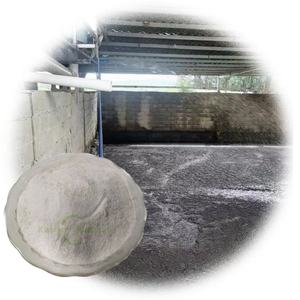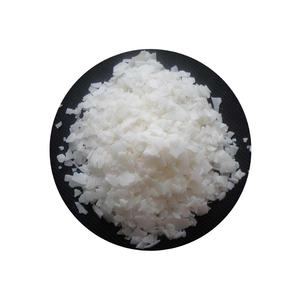Safe and reliable laboratory chemicals | RBOSCHCO- Chemicals Online
PRODUCT PARAMETERS
Description
| Titanium aluminum carbide Powder Properties | |
| Other Names | Titanium Aluminum Carbide,Titanium-Aluminum Carbide MXene, Ti3AlC2 MAXene, Al-doped titanium carbide, TiAlC, Ti3AlC, C2AlTi3, titanium carbide aluminum composite, titanium-aluminum-carbon alloy. |
| CAS No. | 196506-01-1 |
| Compound Formula | Ti3AlC2 |
| Molecular Weight | 157.87 |
| Appearance | Gray powder or solid in various forms (disc, sputtering target, custom shapes) |
| Melting Point | 2100 °C |
| Solubility in water | N/A |
| Density | 2.63 g/cm3 |
| Purity | 99.00% |
| Particle Size | 5-10 microns |
| Boling point | N/A |
| Specific Heat | N/A |
| Thermal Conductivity | N/A |
| Thermal Expansion | N/A |
| Young's Modulus | N/A |
| Exact Mass | 194.825 g/mol |
| Monoisotopic Mass | 194.825 g/mol |
| Titanium aluminum carbide Health & Safety Information | |
| Safety Warning | Danger |
| Hazard Statements | H228-H261-H315-H319-H335 |
| Flashing point | N/A |
| Hazard Codes | Xi, F |
| Risk Codes | N/A |
| Safety Statements | N/A |
| RTECS Number | N/A |
| Transport Information | UN1394 4.3/ PG II |
| WGK Germany | N/A |
(Titanium aluminum carbide Ti3AlC2 Max)
Overview of Titanium Aluminum Carbide Ti3AlC2 MAX
Titanium aluminum carbide, commonly known as Ti3AlC2 MAX, is a ternary carbide belonging to the MAX phase materials. This remarkable compound, with its unique crystal structure, exhibits excellent mechanical properties, making it a highly sought-after material in various industrial applications. Ti3AlC2 MAX's high melting point, excellent thermal stability, and oxidation resistance contribute to its durability and performance in high-temperature environments. Its combination of metal-like conductivity and ceramic-like hardness offers a unique blend of properties that sets it apart from traditional materials.
Characteristics of Titanium Aluminum Carbide Ti3AlC2 MAX
Excellent Thermal Stability: Ti3AlC2 MAX maintains its structural integrity and mechanical properties even at extremely high temperatures, ensuring reliable performance in demanding environments.
High Oxidation Resistance: Its resistance to oxidation allows it to retain its performance characteristics even in oxidizing atmospheres, extending its useful life.
Unique Crystal Structure: Ti3AlC2 MAX exhibits a layered crystal structure that combines the properties of metals and ceramics, providing both strength and ductility.
Good Electrical and Thermal Conductivity: Despite its ceramic-like hardness, Ti3AlC2 MAX exhibits good electrical and thermal conductivity, making it suitable for electrical and thermal applications.
Low Density and High Strength-to-Weight Ratio: Its relatively low density combined with high strength makes it an ideal material for lightweight structural applications.
Application of Titanium Aluminum Carbide Ti3AlC2 MAX
Aerospace Industry: Ti3AlC2 MAX is used in aircraft and spacecraft components due to its high-temperature stability and oxidation resistance, ensuring reliable performance in extreme conditions.

Aerospace Industry
Cutting Tools and Abrasives: Its hardness and wear resistance make it suitable for manufacturing cutting tools and abrasives that require long-lasting performance.

Cutting Tools and Abrasives
High-Temperature Furnace Linings: Ti3AlC2 MAX's thermal stability and oxidation resistance make it an excellent choice for lining high-temperature furnaces, protecting them from degradation.

High-Temperature Furnace Linings
Electrical Applications: Its combination of good electrical conductivity and high-temperature stability is ideal for use in electrical contacts and other high-temperature electrical components.

Electrical Applications
Armor and Protective Coatings: Ti3AlC2 MAX's high hardness and strength contribute to its use in armor plating and protective coatings for enhanced durability and protection.

Armor and Protective Coatings

Company Profile
NANOTRUN(www.rboschco.com) is a trusted global chemical material supplier & manufacturer with over 12-year-experience in providing super high-quality chemicals and nanomaterials, including boride powder, nitride powder, graphite powder, sulfide powder, 3D printing powder, etc.
The company has a professional technical department and Quality Supervision Department, a well-equipped laboratory, and equipped with advanced testing equipment and after-sales customer service center.
If you are looking for high-quality Titanium Aluminum Carbide Ti3AlC2 MAX, please feel free to contact us or click on the needed products to send an inquiry.
Payment Term
L/C, T/T, Western Union, Paypal, Credit Card etc.

Shipment Term
By sea, by air, by express, as customers request.
FAQ
Q1:
What is the melting point of Titanium Aluminum Carbide Ti3AlC2 MAX?
Re: The melting point of Titanium Aluminum Carbide Ti3AlC2 MAX is significantly high, enabling it to retain its structural integrity and mechanical properties even in extreme thermal conditions. This high melting point is a key factor in its suitability for high-temperature applications.
Q2:
How does Ti3AlC2 MAX compare to traditional ceramic materials?
Re: Ti3AlC2 MAX offers a unique combination of properties that sets it apart from traditional ceramic materials. While ceramics are known for their hardness and brittleness, Ti3AlC2 MAX combines the strength of ceramics with the ductility of metals, providing both hardness and toughness.
Q3:
Is Ti3AlC2 MAX suitable for use in oxidizing environments?
Re: Yes, Ti3AlC2 MAX exhibits excellent oxidation resistance, allowing it to retain its performance characteristics even in oxidizing atmospheres. This makes it a suitable material for use in environments where oxidation is a concern.
Q4:
Can Ti3AlC2 MAX be used in electrical applications?
Re: Yes, Ti3AlC2 MAX has good electrical conductivity, making it suitable for use in electrical applications. Its combination of electrical conductivity and high-temperature stability is ideal for use in electrical contacts and other high-temperature electrical components.
Q5:
How is Ti3AlC2 MAX produced?
Re: Ti3AlC2 MAX is typically produced through powder metallurgy techniques, which involve mixing powders of titanium, aluminum, and carbon, followed by sintering and heat treatment to form the desired material. This process allows for precise control over the composition and microstructure of the final product.
REQUEST A QUOTE
RELATED PRODUCTS

Calcium Nitride Ca3N2 Powder CAS 12013-82-0

MAX Special Ceramics Material Titanium Tin Carbide Ti2SnC Powder

High Purity 99% Two-dimensional Material Mxene Ti3C2 Powder

MAX Special Ceramics Material Tantalum Aluminum Carbide Ta4AlC3 Powder

MAX Special Ceramics Material Vanadium Aluminum Carbide V2AlC Powder



